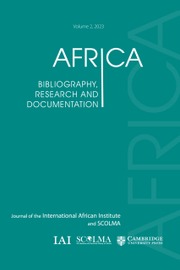This tantalizing book proffers a biographical account of the author’s father, Gerald Clarke. The ‘Old Man’, as the younger Clarke styles him, is posited as the longest-tenured civil servant in the history of colonial Zimbabwe (then Southern Rhodesia), having begun his government service in 1927 (229). For about half of this time, Clarke was a key administrative functionary operating at the pinnacle of Rhodesian statecraft. He served as cabinet secretary and secretary to the office of the prime minister from 1953 to 1970 as white Rhodesia attempted to stem the tide of decolonization.
Regrettably, despite the author’s academic training (a PhD in Economics from St Andrews) and personal proximity to his subject, the younger Clarke is generally unable to impart penetrating insights on the critical historical events his father was privy to. This is not so much due to the shortcomings of the writer, but his subject’s personality. Duncan repeatedly underscores the rationale behind the book’s title, emphasizing Gerald’s reluctance to record his engagements with Rhodesia’s high politics. Duncan relays, ‘there was no private diary, no memoir, no autobiography, no state papers left at home or any that went astray … nothing was ever disclosed, or any confidence betrayed’ (230). Duncan claims that his father only ever gave one interview, to a BPhil student at Oxford (30–1). However, at least one biography of Rhodesian Prime Minister Ian Smith (with an intriguingly similar title) appears to have benefited from an exchange with the ‘Old Man’.Footnote 1
This reticence to develop a parallel non-official record is not atypical. Historians of colonial Zimbabwe will recognize the ‘Old Man’s’ silence. Many records of the renegade government that unilaterally declared independence from British colonial rule in 1965 have been destroyed or suppressed. As the protagonists of Rhodesian resistance die out, there have been few major revelations concerning some of the major mysteries of the independence struggle, such as the 1975 disappearance of Edson Sithole, a prominent Zimbabwean nationalist. Gerald Clarke’s guarded manner elucidates this culture of discretion.
In the absence of significant written documentation, Duncan relies on a hodgepodge of published works, interviews with his father’s contemporaries, and family keepsakes to forge a narrative. The only section of the book in which the Old Man’s direct experience comes through vividly is in a non-civil service aside of some seventy pages on Gerald’s wartime exploits from 1940–45. Here, Duncan profitably draws on thirty-three letters penned by his father (28).
Some of the most compelling insights emerge from the generic picture that Duncan paints of the ‘Old Man’s’ career trajectory and the entrenchment of white Rhodesian society in the aftermath of World War II. Duncan provides a compelling sketch of the personal growth of a Rhodesian bureaucrat. In a relatively short period following the war, the ‘Old Man’ married, bought a house, and purchased a retirement plot near the Mozambique border (142–3). The treatment of Gerald Clarke’s post-cabinet life (1970–81) constitutes an unexpectedly illuminating component of the book. Duncan notes that the escalating civil conflict forced his parents to abandon their idyllic rural retirement and he recounts the ‘Old Man’s’ struggles to obtain an Irish passport following the conclusion of his government service (218–20).
The author is a third-generation Rhodesian of Irish origin. His paternal grandfather, F. J. (‘FJ’) Clarke, settled in the territory in 1897. FJ was also a civil servant, albeit a less silent one who documented his professional life in a diary (265). Predictably, this book reflects a strong Rhodesian allegiance. In The Silent Rhodesian there are no black ‘freedom fighters’. The parlance of white Rhodesian society in the 1970s, ‘terrorist’, is routinely deployed (190, 208, 216ff.). No black Africans receive substantive attention, although there is some passing reference to domestic servants (217).
Duncan’s failure to draw upon the meeting minutes of the Rhodesian cabinet, accessible at the National Archives of Zimbabwe and the Cory Library at Rhodes University, his alma mater, is a significant shortcoming. In lieu of this material, he relies heavily on the meticulous work of J. R. T. Wood, an Edinburgh-trained historian who played a significant role in the production of Ian Smith’s autobiography.Footnote 2 These minutes would have provided the author with a considerable level of insight concerning the some 700-plus cabinet meetings he estimates his father attended (207). Despite struggles to recover dramatic behind-the-scenes material, The Silent Rhodesian provides a constructive overview of the experience of a senior civil servant in the administrative machinery of the Rhodesian government.


